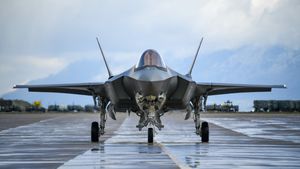The last few weeks have got me thinking.
I’m Isaac Saul, and this is Tangle: an independent, ad-free, subscriber-supported politics newsletter that summarizes the best arguments from across the political spectrum on the news of the day — then “my take.”
Did someone forward you this email? Sign up here. Today's edition is for paying subscribers only. Thank you for supporting our work.
Today's read: 7 minutes.
For as long as I've had opinions about politics, one thing has been obvious to me: We spend way too much money on our military.
At this point, I can recite most of the talking points by heart.
We spend more on defense than the next 11 highest-spending countries combined. In 2015, military expenditures accounted for 54% of our discretionary spending (the "optional" fiscal appropriations). National defense usually accounts for about one-sixth of our total budget. We spent six percent on education. In 2011, even when you factored in state and local spending, we spent $966 billion on defense compared to $880 billion on education. One F-35 fighter plane, worth $178 million, is worth about 3,358 years of college tuition. That same fighter jet is worth just shy of three years of the average salary of 1,000 teachers. For the cost of that same jet, we could give every single one of the roughly 40,000 homeless veterans in America a $4,450 check to get them on their feet.
Et cetera.
I've subscribed to this idea — no, this fact — that the military is overfunded, wrought with waste, and bloated for so long that I can't remember when I first started to believe it. And all for what? Death, losing wars, horror across the globe, and embarrassing withdrawals.
Yet I don’t know the last time I really examined this position and considered whether it was a strong one. I've parroted it offhandedly in Tangle at least a half dozen times that I dug up over the last couple of years, all with little pushback from readers.
And then something happened.
Russia invaded Ukraine.
An odd thing about wartime is that it creates emotionally fraught moments, even (as in this case, for me) when it's not your country at war. The images have the effect of a horror movie that sticks with you, except that they're real. They are happening to someone, somewhere, right now, and it could have been you.
This emotional overload makes it hard to think rationally. I said a few weeks ago that after a week straight of covering the war in Ukraine, I caught myself checking the skies in New York City looking for fighter jets. That's an irrational reaction, but it was one I really had, and a habit I had trouble breaking thanks to the emotional toll that covering the story was taking on me.
So as I watched what was happening and thought to myself, "Man, I am so grateful that isn't happening here," I kept hearing the follow-up question, too: "Why isn't that happening here?"
The answer seemed obvious. So taken for granted that I can say honestly I'm not sure I ever really stopped to think about it for too long. It’s, in large part, because we have the biggest, best-trained, most well-funded military in the world. If an adversary wants to inflict harm on us, the very last thing they'd ever try to do is invade our country, or challenge us militarily, because they know doing so would be akin to a death wish. They believe, rightly or wrongly, that we'd flatten half the planet to stop them.
Of course no military, no matter the size, would immunize us to violence. We have suffered terrorist attacks, and some of them are almost certainly retaliation for our own (or U.S. funded) war crimes abroad. We have mass shootings and a generally violent society, perhaps in part a product of our obsessive worship of guns and the military. More recently, we have become the targets of cyber attacks, a kind of digital combat that can range from merely inconvenient to life-ruining.
But what we don't have are invasions.


